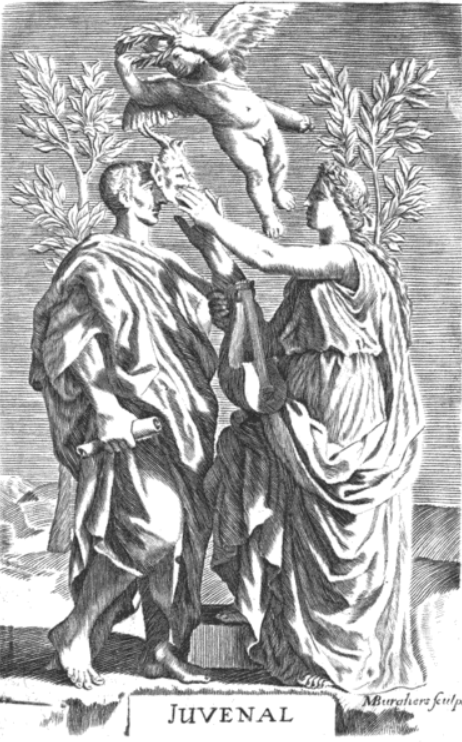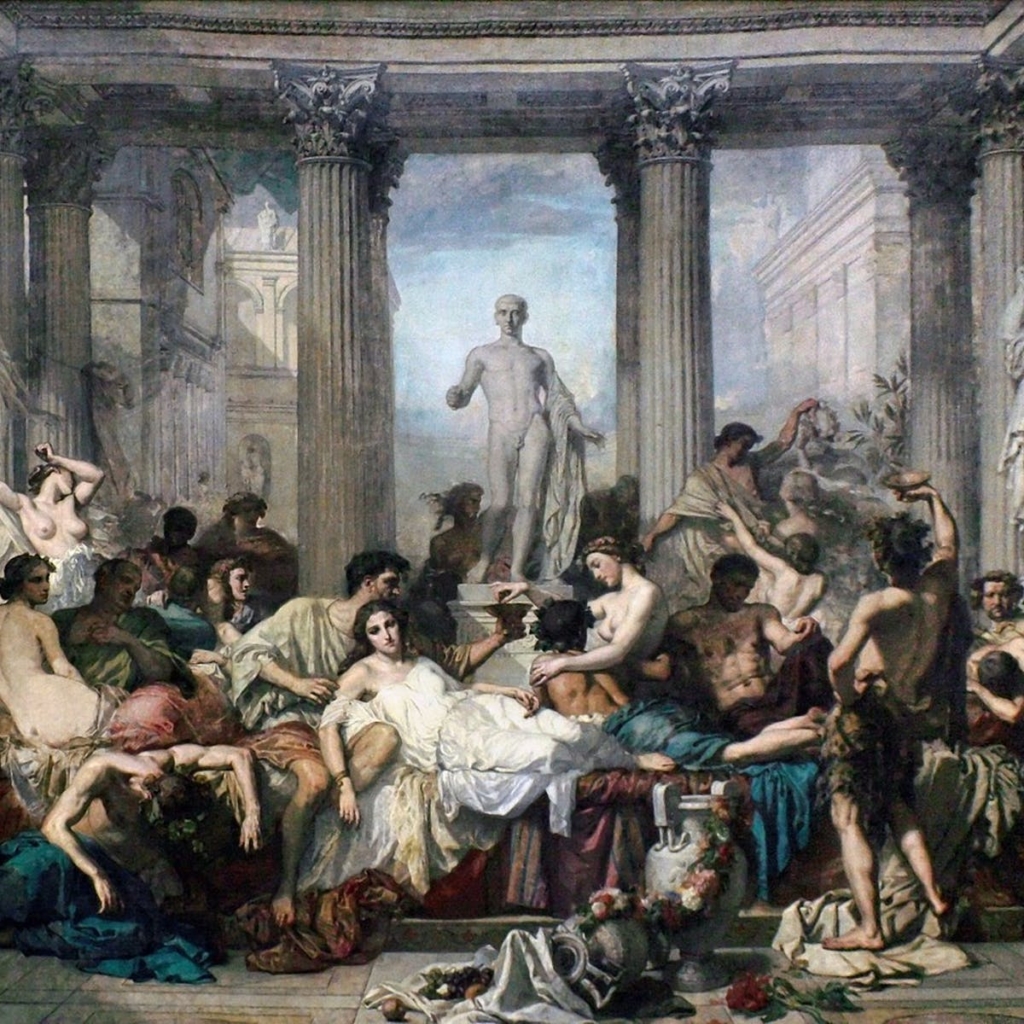Table of contents
(讽刺作家,罗马,约55-约138 CE)
简介
简介See_also: 卡图卢斯51翻译 | 回到页首 |
尤韦纳尔是拉丁文学白银时代的一位罗马诗人,是所有罗马讽刺诗人中最后一位也是最有影响力的一位。 他的尖锐的 "讽刺诗" 可以被解读为对异教罗马的残酷批判,尽管他们夸张的、喜剧性的表达方式使这种假设充其量是值得商榷的。
纪要 | 回到页首 |
 Decimus Iunius Iuvenalis(英文名Juvenal)出生于意大利拉齐奥地区的一个小镇Aquino,是一个富有的自由人(被解放的奴隶)的儿子或养子。 可信的传记资料极为稀少。 一些资料显示他的出生日期为公元55年,其他传统认为他在哈德良死后的一段时间内(公元138年)还活着,但这些由于他没有把自己的作品奉献出来,人们通常认为他没有赞助人,因此可能是独立的富人,尽管有一段时间他似乎也很穷,依赖罗马富人的慈善。
Decimus Iunius Iuvenalis(英文名Juvenal)出生于意大利拉齐奥地区的一个小镇Aquino,是一个富有的自由人(被解放的奴隶)的儿子或养子。 可信的传记资料极为稀少。 一些资料显示他的出生日期为公元55年,其他传统认为他在哈德良死后的一段时间内(公元138年)还活着,但这些由于他没有把自己的作品奉献出来,人们通常认为他没有赞助人,因此可能是独立的富人,尽管有一段时间他似乎也很穷,依赖罗马富人的慈善。
他在军队中成为一名军官,作为在多米蒂安皇帝的行政部门工作的第一步,但当他未能获得晋升时,他变得很沮丧。 大多数传记作者认为他在埃及度过了一段流亡生活,可能是因为他写了一篇讽刺文章,宣称宫廷宠臣在军官的晋升方面有不当的影响,也可能是由于对一名官员的侮辱。目前还不清楚放逐的皇帝是图拉真还是多米蒂安,也不清楚他是在流放中死亡还是在死前被召回罗马(后者似乎最有可能)。
著作 | 回到页首 |
尤韦纳尔有16首有编号的诗,最后一首未完成或至少保存不全,分为五册。 它们都是罗马的 "讽刺 "体裁,用双音六步法对社会和社会习俗进行广泛的讨论。 第一册,包括 "讽刺诗1-5" 其余的书在不同的时间段出版,估计第五册的出版日期约为公元130年,但确切日期尚不清楚。
See_also: 寓言 - 伊索 - 古希腊 - 古典文学 从技术上讲,尤韦纳尔的诗歌非常精美,结构清晰,充满了表现力,其中声音和节奏模仿并加强了感觉,有许多尖锐的短语和令人难忘的附言。 他的诗歌既抨击了罗马城社会的腐败,也抨击了一般人的愚蠢和残暴,并对所有罗马的代表表现出愤怒的蔑视。例如,《讽刺诗六》有600多行,对罗马妇女的愚蠢、傲慢、残忍和性堕落进行了无情而尖锐的谴责。
从技术上讲,尤韦纳尔的诗歌非常精美,结构清晰,充满了表现力,其中声音和节奏模仿并加强了感觉,有许多尖锐的短语和令人难忘的附言。 他的诗歌既抨击了罗马城社会的腐败,也抨击了一般人的愚蠢和残暴,并对所有罗马的代表表现出愤怒的蔑视。例如,《讽刺诗六》有600多行,对罗马妇女的愚蠢、傲慢、残忍和性堕落进行了无情而尖锐的谴责。
尤文纳的 "讽刺诗" 是许多著名格言的来源,包括 "panem et circenses"("面包和马戏",暗示这些都是老百姓感兴趣的)、"mens sana in corpore sano"("健全的身体里有健全的头脑")、"rara avis"("稀有的鸟",指完美的妻子)和 "quis custodiet ipsos custodes?"("谁会自己看守监护人?"或 "谁会看着观察者?")。
讽刺诗体裁的创始人通常被认为是卢西利乌斯(他以尖刻的方式而闻名),贺拉斯和珀西乌斯也是这种风格的著名支持者,但人们普遍认为尤文纳将这种传统推向了顶峰。 然而,他在当时的罗马文学界显然不那么出名,他的作品几乎都没有提到过。事实上,直到西元四世纪末的塞尔维乌斯,尤韦纳尔才得到一些迟来的认可。
| 主要工程 | 回到页首 |
- "讽刺诗III"
- "讽刺诗六"
- "讽刺X"
